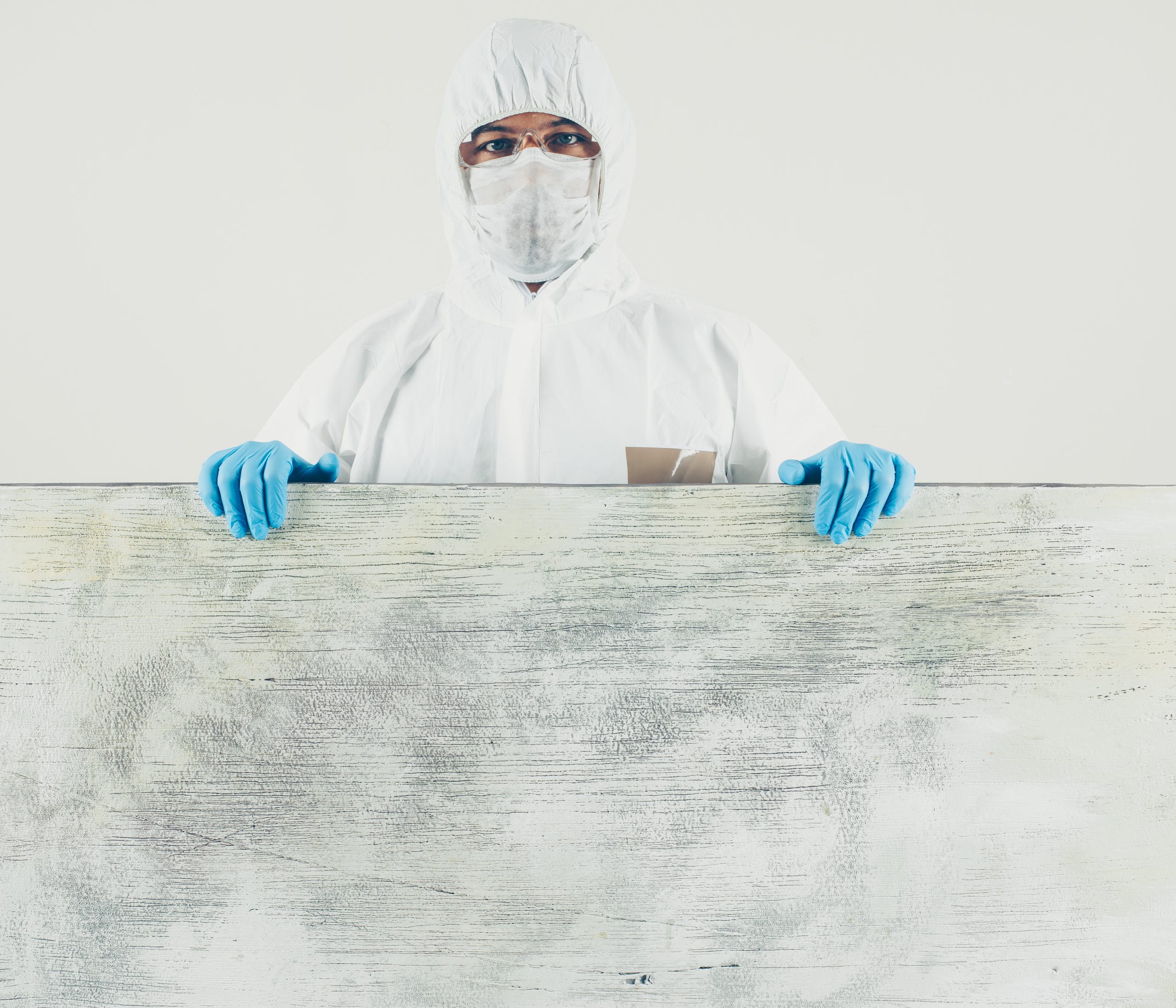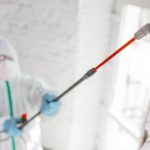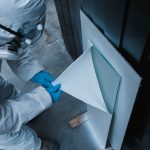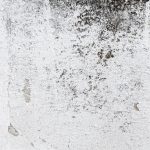
Living with mold can pose significant health risks, especially for those in humid regions like Southwest Florida, where mold thrives. If you’re in areas like Naples, Fort Myers, Cape Coral, or Bonita Springs and suspect mold in your home, you might wonder if it’s safe to stay there. Mold can impact health and cause structural damage, so understanding the risks and solutions is essential. This article will help you assess the safety of staying in a mold-affected home and explore ways to address the problem.
What Are the Risks of Living with Mold?
Mold is a type of fungus that reproduces through spores, which are tiny particles that travel through the air and settle on surfaces. When they encounter moisture, these spores grow and spread. Certain types of mold produce toxins known as mycotoxins, which can lead to adverse health effects when inhaled, touched, or ingested.
Health Risks Associated with Mold
Mold exposure doesn’t affect everyone equally. People with asthma, allergies, compromised immune systems, or chronic respiratory issues may experience heightened sensitivity to mold. Symptoms can vary from mild to severe, depending on the type and concentration of mold, the duration of exposure, and individual health factors.
Common health issues linked to mold exposure include:
- Respiratory Problems: Coughing, sneezing, wheezing, and shortness of breath.
- Allergic Reactions: Runny nose, itchy eyes, skin rashes, and throat irritation.
- Asthma Triggers: Mold exposure can trigger asthma attacks in those with preexisting conditions.
- Fatigue and Headaches: Constant exposure to mold spores can lead to chronic fatigue and headaches.
- Serious Infections: People with weakened immune systems may experience severe infections, as certain molds can invade their systems.
How Mold Affects Your Home’s Safety and Value
Besides health risks, mold can compromise the structural integrity of your home. Mold can thrive on wood, drywall, carpets, and insulation, which leads to deterioration over time. If left unaddressed, mold can:
- Damage Walls and Ceilings: Mold weakens drywall and wood, eventually causing them to rot or crack.
- Decrease Home Value: Homes with mold issues often see a drop in market value, as potential buyers may be wary of hidden damage and the cost of remediation.
- Create Lingering Odors: Mold can leave a persistent musty smell that’s difficult to remove without proper remediation.
If you’re considering selling your home in Southwest Florida or just maintaining it for the long term, addressing mold issues is crucial to preserving its value.
Types of Mold and Their Risks
Not all molds pose the same level of risk, but some types are more hazardous than others:
- Stachybotrys chartarum (Black Mold): Known for its dark green or black appearance, this mold type can produce toxins that are particularly dangerous to human health. Long-term exposure to black mold can lead to severe respiratory issues and neurological symptoms.
- Aspergillus: Found in damp or decaying areas, aspergillus spores can cause respiratory issues, especially in people with weakened immune systems.
- Cladosporium: Often found on wood and textiles, cladosporium may trigger allergies and asthma.
- Penicillium: This mold spreads quickly on water-damaged surfaces and can lead to respiratory issues and allergic reactions.
If you suspect black mold or another toxic mold type, it’s especially important to seek professional help as soon as possible.
Is It Safe to Stay in a Home with Mold?
Whether or not it’s safe to stay in a house with mold depends on the severity of the infestation, the mold type, and your health status. Here are some guidelines to consider:
- Mild Infestations in Limited Areas: If the mold is confined to a small, manageable area and is a less dangerous type, you may be able to remain in the home while addressing the issue. However, it’s crucial to wear protective gear, avoid direct contact, and take precautions to prevent mold spores from spreading.
- Moderate to Severe Infestations: If the mold covers a large area or is affecting multiple rooms, it’s best to relocate temporarily. Living in a house with severe mold exposure increases the risk of respiratory issues, especially in children, the elderly, and individuals with respiratory or immune conditions.
- Presence of Black Mold: If black mold or any other toxic mold type is present, it’s generally not safe to stay in the home. Black mold can produce toxins that have severe health effects, and exposure should be minimized as much as possible.
- Sensitive Individuals in the Household: If anyone in your home has asthma, allergies, or compromised immunity, it’s safest to stay elsewhere until the mold is removed.
Steps to Take if You Suspect Mold
If you live in Naples, Fort Myers, Cape Coral, or other Southwest Florida locations, and suspect mold, follow these steps:
- Contact a Professional Mold Remediation Service
Professional mold remediation companies, like QCI Online, have the expertise and equipment to safely and thoroughly remove mold. They conduct an initial inspection, contain the mold, and use specialized equipment to eliminate mold spores from the air and surfaces. - Schedule an Inspection
At QCI Online, our technicians are certified to assess the extent of mold contamination and identify the type of mold present. We service Naples, Fort Myers, Cape Coral, Bonita Springs, and surrounding areas, providing thorough, effective inspections and remediation plans. - Follow the Remediation Plan
Once an inspection is complete, a customized remediation plan is created to tackle the mold in your home. This may involve isolating affected areas, using hydroxyl generators for chemical-free removal, and conducting post-remediation testing to ensure safety. - Consider Relocating Temporarily
If the infestation is severe, it’s best to stay elsewhere during the remediation process. Our team at QCI Online provides clear guidance on the timeline, allowing you to plan for temporary relocation if necessary.
Mold Prevention Tips for Southwest Florida Homes
After addressing mold issues, taking preventive steps can reduce the risk of recurrence:
- Control Humidity Levels: Use dehumidifiers to keep indoor humidity below 60%.
- Fix Leaks Promptly: Address plumbing leaks or roof issues immediately to prevent moisture buildup.
- Improve Ventilation: Ensure proper ventilation in areas like bathrooms, kitchens, and basements.
- Regular Inspections: Schedule regular mold inspections, especially during humid seasons, to catch issues early.
How QCI Online Can Help Southwest Florida Residents
Living with mold isn’t safe for long, especially if the mold is toxic or if anyone in the home has respiratory issues. QCI Online provides prompt, professional mold inspection, testing, and remediation services throughout Naples, Fort Myers, Cape Coral, Bonita Springs, and other nearby areas. Our team is certified, experienced, and committed to providing safe, effective mold solutions for homeowners and businesses.
Contact QCI Online at (239) 777-2875or visit our website qci-online.com to schedule an inspection or learn more about our mold remediation services. Don’t compromise on safety—trust our team to help you create a healthy, mold-free environment.






